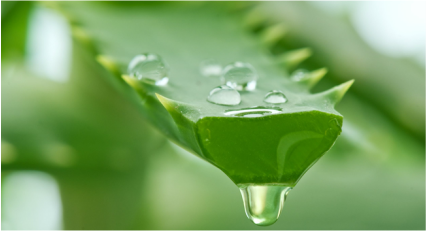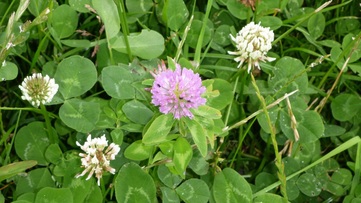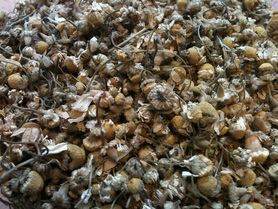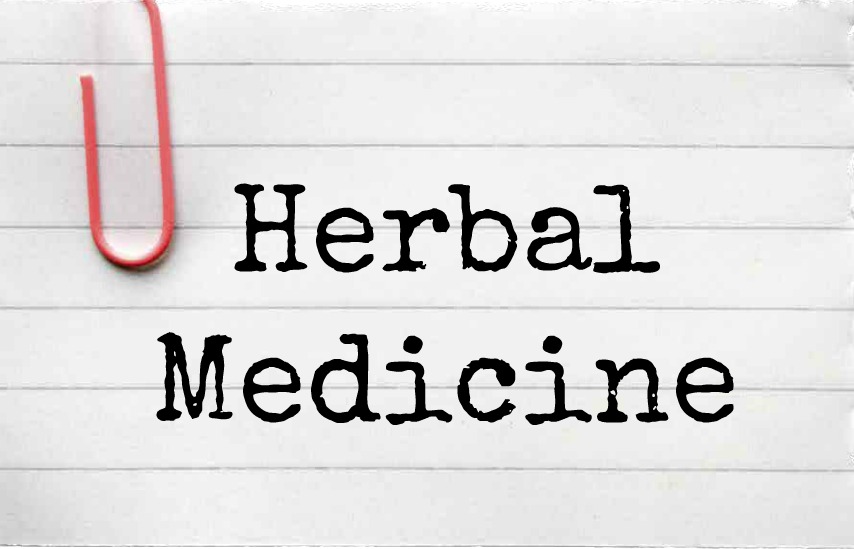Skin Conditions
Eczema
Eczema is common skin condition, characterized by red raised lesions and vesicles formation, which may lead to weeping and crusting. Eczema varies from individual to individual and presents in many different forms. In mild case of eczema the skin is dry, scaly and itchy; more severe cases there may be weeping, crusting and bleeding. Scratching could worsen and spread eczema and broke the skin which may lead to infection, specially in young children.
Causes:
Symptoms :
Conventional Treatments:
Treatment varies depending on severity, moisturizing creams or ointments, topical or/and oral corticosteroid (hydrocortisone) drugs; use of hypoallergenic fabric, bed clotting, hygiene products, detergents, etc; cover of the affected area with a sterile cotton bandage to prevent scratching; in case of open, wet, cracked lesions cool water compresses followed by the application of fragrance free lubricants may help.
Eczema is common skin condition, characterized by red raised lesions and vesicles formation, which may lead to weeping and crusting. Eczema varies from individual to individual and presents in many different forms. In mild case of eczema the skin is dry, scaly and itchy; more severe cases there may be weeping, crusting and bleeding. Scratching could worsen and spread eczema and broke the skin which may lead to infection, specially in young children.
Causes:
- Atopic eczema is associated with a personal medical history and/or family history of allergies.
- Contact eczema (contact dermatitis) is caused by contact with a particular chemical, cleaning agents, perfume, cosmetics, dyes, mineral, poisonous plants, rubber or latex, topical medications, etc.
- Some drugs such as penicillin , may cause eczema by people allergic to them.
- Poor circulation could lead to stasis eczema (venous eczema occurs on middle age and elderly people)
- In some cases the cause of eczema is unknown.
Symptoms :
- Itchy patches of dry, swollen, scaly rough , cracked or reddened skin.
- Oozing and crusting in the affected area.
- Rash in sharply angulated lines (contact eczema/dermatitis, such as poison ivy)
- Dark brown scaly patches on the legs (stasis eczema)
- Scaly patches on eyebrows, side of the nose, ears, scalp (seborrheic eczema)
- Thick, dry, scaly, reddish-brown patches on creases of arms and legs (atopic eczema)
Conventional Treatments:
Treatment varies depending on severity, moisturizing creams or ointments, topical or/and oral corticosteroid (hydrocortisone) drugs; use of hypoallergenic fabric, bed clotting, hygiene products, detergents, etc; cover of the affected area with a sterile cotton bandage to prevent scratching; in case of open, wet, cracked lesions cool water compresses followed by the application of fragrance free lubricants may help.
Acne (acne vulgaris)
Acne is a common disorder that occurs as result of blockage of the sebaceous ducts and inflammation of the sebaceous glands and the surrounding area. Acne occurs in males and females, is most common during the adolescence or early adulthood and usually subsides on the late twenties, but it may persists into adulthood.
Acne may be presented as:
Causes:
Acne is a common disorder that occurs as result of blockage of the sebaceous ducts and inflammation of the sebaceous glands and the surrounding area. Acne occurs in males and females, is most common during the adolescence or early adulthood and usually subsides on the late twenties, but it may persists into adulthood.
Acne may be presented as:
- A closed comedo or white-head, a complete blockage of the follicle produces a light -coloured bump, is completely cover by the epidermis
- An open comedo or black-head, an incomplete blockage of the follicle, is not covered by the epidermis, melanin or pigment of the follicle causes the black colour.
- Pimple, occurs when bacteria normally found on the surface of the skin infects the white-head or black-head, producing pus and causing an eruption (=pimple).
- Cystic acne, occurs in severe cases, painful purple lumps develop.
Causes:
- Hormonal changes during puberty, pregnancy or menopause, resulting in increased sebum production
- Hereditary factors. Other factors include climate changes, stress and exposure to dioxin
- Certain drugs or compounds such as corticosteroids, anabolic steroids, iodides, bromides and lithium.
- Grease, tar, heavy oils, cosmetics, tight clotting, or anything that block the pores.
- In adults acne could by developed due to an underlying condition such as Cushing’s Syndrome or polycystic ovary syndrome.
Psoriasis
Psoriasis is an autoimmune chronic non-contagious disorder that affect the skin. It is characterized by patches of raised, red bumps covered with white, flaking scales. Psoriasis presents remission and flare up episodes can occur in any area of the skin, but usually develops on scalp, knees or elbows and the condition . Psoriasis is not curable but can be managed with treatment.
Skin cells have a normal grow cycle of about 28 days; skin cells are produced constantly in the deepest layer of the skin and slowly rise to the surface. In psoriasis the immune system is altered and T-cells attacks healthy skin cells , which triggers the immune system to produce new skin cells and more T-cells. The result is that in areas affected by psoriasis the skin cell cycle became faster, new cells only take 3-4 days to reach skin’s surface, and the accumulation of excess cells cause the characteristic scaly plaques.
Causes:
Symptoms:
Conventional Treatments:
Treatments range from moisturizing creams to prevent dryness, prescription creams or ointments containing cortisone, preparations or shampoos containing coal tar, phototherapy or photo-chemotherapy, and in severe cases immunosuppressive or antiproliferative drugs such as methotrexate, acitretin or cyclosporine.
Psoriasis is an autoimmune chronic non-contagious disorder that affect the skin. It is characterized by patches of raised, red bumps covered with white, flaking scales. Psoriasis presents remission and flare up episodes can occur in any area of the skin, but usually develops on scalp, knees or elbows and the condition . Psoriasis is not curable but can be managed with treatment.
Skin cells have a normal grow cycle of about 28 days; skin cells are produced constantly in the deepest layer of the skin and slowly rise to the surface. In psoriasis the immune system is altered and T-cells attacks healthy skin cells , which triggers the immune system to produce new skin cells and more T-cells. The result is that in areas affected by psoriasis the skin cell cycle became faster, new cells only take 3-4 days to reach skin’s surface, and the accumulation of excess cells cause the characteristic scaly plaques.
Causes:
- The exact cause of psoriasis is unknown
- Hereditary factors.
- Flare-ups could be triggered by infection, alcohol, stress, cold temperatures or skin injury. Certain medications (such as antimalarial drugs and lithium) or initiation and withdrawal of corticosteroids may produce a severe flare up.
Symptoms:
- Itchy or painful patches of red, raised plaques with silvery-white, flackin scales, commonly located on the scalp, knees, elbows, navel, or fold of the buttocks.
- Itching skin.
- Loosened, pitted, thickened, and/or discoloured nails.
- Join pain and stiffness (psoriatic arthritis).
- Hereditary factors.
Conventional Treatments:
Treatments range from moisturizing creams to prevent dryness, prescription creams or ointments containing cortisone, preparations or shampoos containing coal tar, phototherapy or photo-chemotherapy, and in severe cases immunosuppressive or antiproliferative drugs such as methotrexate, acitretin or cyclosporine.
Skin Self Care:
- Do not wash more than twice a day, use mild soap or cleanser and dry the area thoroughly in gentle manner. Avoiding really hot water, which may worsen your skin condition.
- Avoid vigorously scrubbing on affected areas.
- Always moisturised your skin after washing it , even if you have oily skin, this will stop your skin from producing excess oil to compensate dryness. Avoid petroleum base ointment such as Vaseline which would blocked skin pores and could promote infections. Use water-base or vegetable creams/oils such as a sweet almond or jojoba instead.
- Moisturised is vital on dried eczema and psoriasis to avoid cracked skin which could lead to infection.
- Avoid excessive use of make up and cosmetics, and always use water-based and hypoallergenic products. All make up should be completely removed at night.
- Avoid triggers, in order to identified triggers a food journal is a must.
- In general terms keeping a healthy diet, avoiding coffee, sugar and fat rich foods and process foods, ease skin conditions. So be kind to yourself it would be reflected on your face!
- Drink water! Easy ,simple and cheap!
- Avoid scratching or picking skin lesions, as this practise could promote and spread infection, and in any case this would worsen your skin condition. Special care must be taken in cases of young children with eczema or psoriasis.
- Avoid irritants. Use fragrant free products, and consider the use of laundry detergents and conditioners suitable for sensitive skin or hypoallergenic, particularly in eczema or psoriasis cases.
- Stress would in most cases worsen skin conditions, so RELAX!... walk, read, meditate, treat yourself and have a massage, do tai-chi or yoga, whatever you think that would reduce your every day stress /tension.
- Exercise and fresh air to keep a healthy body and mind.
- Sleep!
Few Useful Herbs
Chamomile (matricaria/chamomila recutita)
Actions--Anti-inflammatory, vulnerary, antimicrobial, mild analgesic, bitter, mild antiseptic, anti-histamine, nervine
Indications—food sensitivity, anxiety, restlessness, teething . Topically for dermatitis, mouth ulcers, wounds, generally for inflammation and irritation of skin and mucosa (including oral cavity and gums)
Chickweed (Stellaria media)
Actions--Demulcent, astringent, refrigerant, emollient, vulnerary, anti-itchy
Indications— Topically for dermatitis, eczema, psoriasis, wounds, insect bites, burns
Cleavers (Galium aparine)
Actions--Depurative, diuretic, lymphatic,. astringent tonic, anti-inflammatory.
Indications--enlarged or inflamed lymph glands, eczema, dermatitis, acne, psoriasis, rosacea.
Marigold (Calendula officinalis )
Actions--Vulnerary, anti-inflammatory, antimicrobial, antifungal, antiviral, lymphatic
Indications--Topically to treat: Acne dermatitis, eczema, wounds, inflamed skin, nappy rash, insect bites, mouth ulcers, minor burns, ulcers, herpes simplex.
Nettle leaf (Urtica dioica)
Actions--Anti-histamine, depurative, antiseptic, anti-itchy, re-mineraliser., astringent tonic.
Indications— Hay fever, dermatitis, urticaria, chronic skin disease.
Red Clover (Trifolium pratense)
Actions--Anti-inflammatory, depurative.
Indications--Chronic skin conditions, psoriasis, eczema, dermatitis.
Chamomile (matricaria/chamomila recutita)
Actions--Anti-inflammatory, vulnerary, antimicrobial, mild analgesic, bitter, mild antiseptic, anti-histamine, nervine
Indications—food sensitivity, anxiety, restlessness, teething . Topically for dermatitis, mouth ulcers, wounds, generally for inflammation and irritation of skin and mucosa (including oral cavity and gums)
Chickweed (Stellaria media)
Actions--Demulcent, astringent, refrigerant, emollient, vulnerary, anti-itchy
Indications— Topically for dermatitis, eczema, psoriasis, wounds, insect bites, burns
Cleavers (Galium aparine)
Actions--Depurative, diuretic, lymphatic,. astringent tonic, anti-inflammatory.
Indications--enlarged or inflamed lymph glands, eczema, dermatitis, acne, psoriasis, rosacea.
Marigold (Calendula officinalis )
Actions--Vulnerary, anti-inflammatory, antimicrobial, antifungal, antiviral, lymphatic
Indications--Topically to treat: Acne dermatitis, eczema, wounds, inflamed skin, nappy rash, insect bites, mouth ulcers, minor burns, ulcers, herpes simplex.
Nettle leaf (Urtica dioica)
Actions--Anti-histamine, depurative, antiseptic, anti-itchy, re-mineraliser., astringent tonic.
Indications— Hay fever, dermatitis, urticaria, chronic skin disease.
Red Clover (Trifolium pratense)
Actions--Anti-inflammatory, depurative.
Indications--Chronic skin conditions, psoriasis, eczema, dermatitis.
Few Natural Remedies
Before administrate any of the remedies relate in this article make sure that whoever is going to be treated is not allergic to any of the ingredients use on the recipe. Use remedies sensible and do not overdose, If in doubt seek professional advice from your doctor or medical herbalist.
Acne— A good topical cleanser can be simply made with Witch Hazel and few drops of tea tree oil.
Bentonite clay facial mask [Do not use on eczema or psoriasis lesions]— Ideal to treat acne, can be mixed with any floral water, raw apple cider vinegar, water or/and oil (jojoba, almond, essential oils). Mix equal parts of clay with for example a tablespoon of clay and a tablespoon of rose water and few drops of jojoba oil, mix well until a paste is formed, apply to the face (previously clean) and allow the mask to dry thoroughly. Once is completely dry, takes about 10-15 mins remove with warm water. After removing the mask is normal to have a warm and red face which will ease after a little while. Do not use the mask more than twice a week.
Eczema--Make strong infusion of marigold (calendula officinalis), chickweed (stellaria media) and nettle (urtica dioica), pour 2 tablespoon full of the dried herbs per pint of boiling water, cover and leave to infuse for 15 minutes, cool it down and store in the fridge for no more than 2-3 days, spray over the affected area, alternatively can be apply as compress . This remedy will ease itchiness, redness and inflammation and is also useful in cases of psoriasis.
Psoriasis— Bath : In a clean old cotton sock filled with bran, oatmeal, chamomile flowers (Chamomilla recutita), yarrow (Achillea millefolium) or elderflowers (Sambucus nigra) and infuse in 1 pint of boiling water for 15 minutes, strain the sock and add the infusion to the bath water, use the sock as a sponge. Bath should not be taken really hot but tepid.
Aloe Vera gel--A simple but really effective remedy cooling, anti-inflammatory, anti-itchy and helps to heal skin lesions.
Flower waters--Can be used as a facial tonic, wash or as an ingredient for a facial mask. Useful flower waters: Orange flower( mild astringent, refreshing and soothing), rose (astringent, great cleanser ideal for oily skin) and witch Hazel (anti-inflammatory, cooling, cleansing astringent).
Before administrate any of the remedies relate in this article make sure that whoever is going to be treated is not allergic to any of the ingredients use on the recipe. Use remedies sensible and do not overdose, If in doubt seek professional advice from your doctor or medical herbalist.
Acne— A good topical cleanser can be simply made with Witch Hazel and few drops of tea tree oil.
Bentonite clay facial mask [Do not use on eczema or psoriasis lesions]— Ideal to treat acne, can be mixed with any floral water, raw apple cider vinegar, water or/and oil (jojoba, almond, essential oils). Mix equal parts of clay with for example a tablespoon of clay and a tablespoon of rose water and few drops of jojoba oil, mix well until a paste is formed, apply to the face (previously clean) and allow the mask to dry thoroughly. Once is completely dry, takes about 10-15 mins remove with warm water. After removing the mask is normal to have a warm and red face which will ease after a little while. Do not use the mask more than twice a week.
Eczema--Make strong infusion of marigold (calendula officinalis), chickweed (stellaria media) and nettle (urtica dioica), pour 2 tablespoon full of the dried herbs per pint of boiling water, cover and leave to infuse for 15 minutes, cool it down and store in the fridge for no more than 2-3 days, spray over the affected area, alternatively can be apply as compress . This remedy will ease itchiness, redness and inflammation and is also useful in cases of psoriasis.
Psoriasis— Bath : In a clean old cotton sock filled with bran, oatmeal, chamomile flowers (Chamomilla recutita), yarrow (Achillea millefolium) or elderflowers (Sambucus nigra) and infuse in 1 pint of boiling water for 15 minutes, strain the sock and add the infusion to the bath water, use the sock as a sponge. Bath should not be taken really hot but tepid.
Aloe Vera gel--A simple but really effective remedy cooling, anti-inflammatory, anti-itchy and helps to heal skin lesions.
Flower waters--Can be used as a facial tonic, wash or as an ingredient for a facial mask. Useful flower waters: Orange flower( mild astringent, refreshing and soothing), rose (astringent, great cleanser ideal for oily skin) and witch Hazel (anti-inflammatory, cooling, cleansing astringent).






 RSS Feed
RSS Feed
